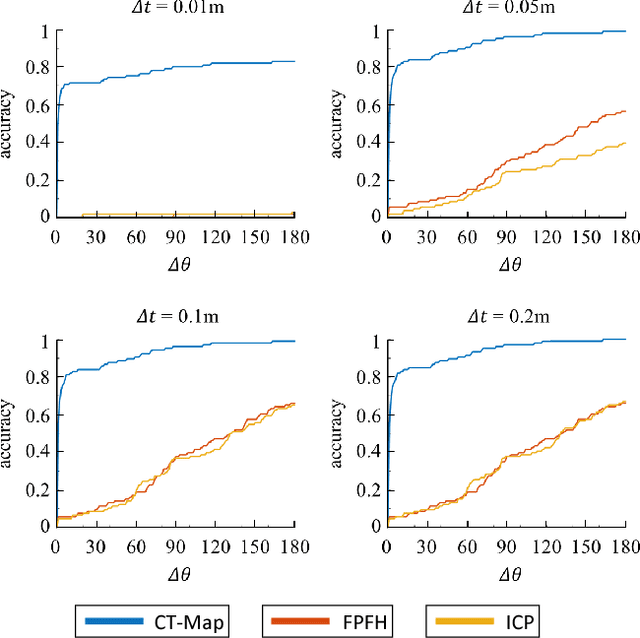Semantic Mapping with Simultaneous Object Detection and Localization
Paper and Code
Oct 26, 2018



We present a filtering-based method for semantic mapping to simultaneously detect objects and localize their 6 degree-of-freedom pose. For our method, called Contextual Temporal Mapping (or CT-Map), we represent the semantic map as a belief over object classes and poses across an observed scene. Inference for the semantic mapping problem is then modeled in the form of a Conditional Random Field (CRF). CT-Map is a CRF that considers two forms of relationship potentials to account for contextual relations between objects and temporal consistency of object poses, as well as a measurement potential on observations. A particle filtering algorithm is then proposed to perform inference in the CT-Map model. We demonstrate the efficacy of the CT-Map method with a Michigan Progress Fetch robot equipped with a RGB-D sensor. Our results demonstrate that the particle filtering based inference of CT-Map provides improved object detection and pose estimation with respect to baseline methods that treat observations as independent samples of a scene.
 Add to Chrome
Add to Chrome Add to Firefox
Add to Firefox Add to Edge
Add to Edge